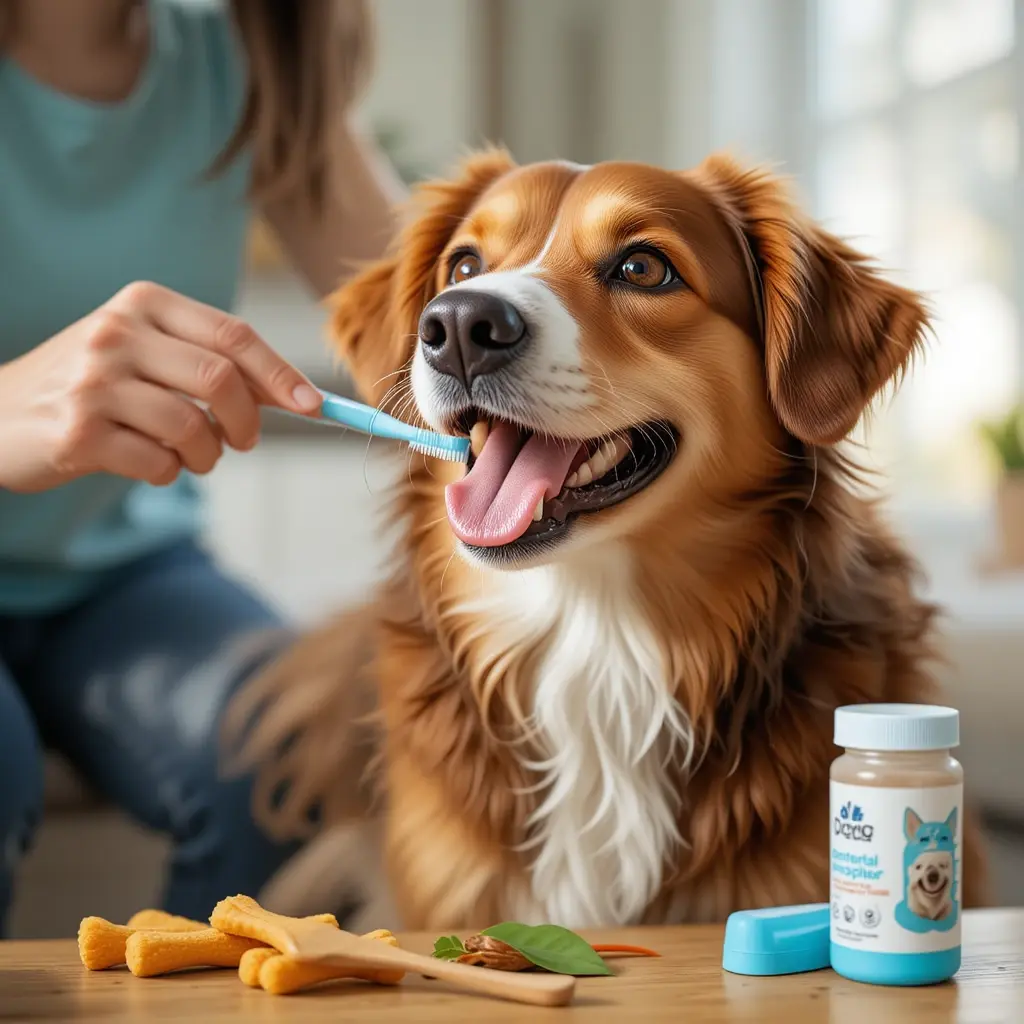
Introduction
When it comes to keeping your dog happy and active, dental health is often overlooked. Just like humans, dogs can suffer from plaque, tartar buildup, gum disease, and even tooth loss if their teeth are not properly cared for. In fact, veterinarians estimate that over 80% of dogs show signs of dental disease by the age of three.
Good oral hygiene not only keeps your dog’s teeth strong and healthy but also prevents serious health complications such as heart, kidney, and liver problems caused by untreated dental infections. The good news? With the right habits, you can protect your dog’s smile and overall well-being.
In this guide, we’ll share 10 essential tips to keep your dog’s teeth strong and healthy, so your furry friend can live a longer, happier, and healthier life.
—
Why Is Dog Dental Care Important?
Before diving into the tips, it’s important to understand why dental health matters for dogs. Poor oral hygiene can lead to:
Bad breath (halitosis)
Painful gum disease (gingivitis, periodontitis)
Tooth decay and loss
Bacterial infections that may spread to major organs
By following preventive care steps, you’ll save money on costly dental treatments and, more importantly, ensure your dog enjoys a healthier and more comfortable life.
—
10 Essential Tips to Keep Your Dog’s Teeth Strong and Healthy
1. Brush Your Dog’s Teeth Regularly
Brushing your dog’s teeth is the most effective way to prevent plaque and tartar buildup. Use:
A dog-specific toothbrush or finger brush
Dog-friendly toothpaste (never human toothpaste, as it can be toxic)
Aim to brush at least 3–4 times a week, but daily brushing is ideal. Start slowly and reward your dog with treats or praise to make it a positive experience.
—
2. Provide Dental Chews and Toys
Dental chews are designed to reduce plaque and tartar while keeping your dog entertained. Look for chews that carry the Veterinary Oral Health Council (VOHC) seal, which means they are proven to promote dental health.
Chew toys made of durable rubber can also massage gums and clean teeth naturally during play.
—
3. Feed a Dental-Friendly Diet
Some dog foods are specifically formulated to improve oral health. These kibbles are often larger and textured to scrape away plaque as your dog chews. Discuss with your veterinarian if a dental diet would be beneficial for your pup, especially if they are prone to dental disease.
—
4. Schedule Regular Professional Cleanings
Even with consistent home care, professional veterinary cleanings are essential. During a cleaning, your vet will:
Remove plaque and tartar from above and below the gum line
Polish teeth to prevent buildup
Examine for early signs of disease
Annual or biannual dental cleanings are recommended, depending on your dog’s age and health.
—
5. Offer Raw Bones or Safe Alternatives
Raw bones (not cooked bones, which can splinter) can help scrape off plaque naturally. However, bones aren’t suitable for every dog, especially aggressive chewers or those prone to broken teeth.
Safer alternatives include nylon bones, rubber toys, or vet-approved dental chews that provide the same cleaning benefits without the risks.
—
6. Use Dental Wipes or Sprays
If brushing your dog’s teeth is a struggle, dental wipes and sprays can be a practical alternative. They help reduce bacteria and freshen breath, though they aren’t as effective as brushing. These products are especially useful for busy pet owners who want quick maintenance between brushings.
—
7. Monitor for Signs of Dental Problems
Keep an eye on your dog’s mouth and gums. Warning signs include:
Persistent bad breath
Red, swollen gums
Excessive drooling
Difficulty eating or chewing
Loose or missing teeth
If you notice any of these symptoms, schedule a vet appointment immediately. Early intervention can prevent more serious problems.
—
8. Reward Chewing Behavior with Healthy Snacks
Chewing is a natural behavior for dogs that also supports dental health. Instead of unhealthy treats, reward your dog with:
Carrots
Apple slices (without seeds)
Vet-approved dental treats
These snacks are low in calories and help clean teeth while satisfying your dog’s natural urge to chew.
—
9. Consider Water Additives
Water additives act like a mouthwash for dogs. Simply add them to your dog’s water bowl to reduce plaque, fight bacteria, and freshen breath. While not a replacement for brushing, they are an easy way to support daily dental care.
—
10. Start Dental Care Early
The best time to begin caring for your dog’s teeth is when they are a puppy. Early training helps your dog become comfortable with tooth brushing, dental chews, and vet visits. However, it’s never too late—senior dogs also benefit greatly from improved oral hygiene.
—
Bonus Tip: Work with Your Veterinarian
Every dog is different, and some breeds (like Dachshunds, Chihuahuas, and Yorkshire Terriers) are more prone to dental disease. Your vet can recommend the most effective routine based on your dog’s breed, age, and health condition.
—
Conclusion
Dental care is one of the most important parts of your dog’s overall health. By brushing regularly, providing dental chews, scheduling vet cleanings, and paying attention to diet, you can prevent painful dental disease and ensure your dog maintains strong, healthy teeth for years to come.
Remember: prevention is always easier—and more affordable—than treatment. Start applying these 10 essential tips today, and you’ll not only keep your dog’s teeth clean but also improve their quality of life and longevity.


